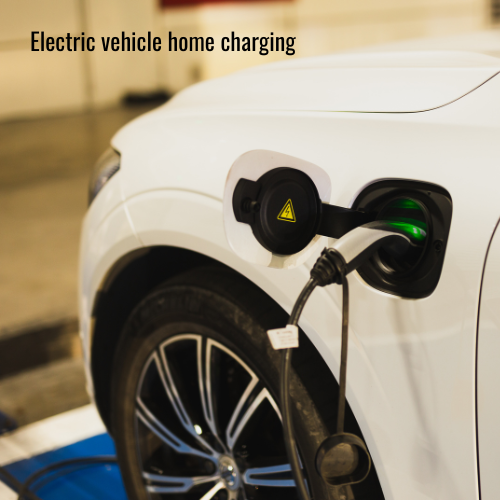The ATO recently released draft guidelines setting out a methodology for calculating the cost of electricity when an electric vehicle (‘EV’) is charged at an employee’s or individual’s home.
The draft guidelines may be relied on by employers and individuals who satisfy the required criteria for FBT and income tax purposes respectively, as set out in the draft guidelines.
The employer or individual can choose if they want to use the methodology outlined in the draft guidelines, or if they would like to determine the cost of the electricity by determining its actual cost.
The choice is per vehicle and applies for the whole income or FBT year. However, it can be changed by the employer or individual from year to year.
Cents-per-kilometre rate
The rate for the FBT tax year or income year commencing on or after 1 April 2022 is 4.2 cents per km (the “EV home charging rate”), which is multiplied by the total number of relevant kilometres travelled by the electric vehicle in the relevant income year or FBT year.
However, if electric vehicle charging costs are incurred at a commercial charging station, a choice has to be made:
- The EV home charging rate can be used, but only if the commercial charging station cost is disregarded.
- If the commercial charging station cost is used, the EV home charging methodology cannot be applied.
Further, all necessary records (such as receipts) must be kept to substantiate the claim, as per normal record-keeping rules.
Record keeping
If a taxpayer wishes to rely on the EV home charging rate to calculate their electricity charging expenses, they will need to keep a record of the distance travelled by the car (i.e., generally odometer records) in either the applicable FBT year to 31 March or the income year to 30 June.
Also, if an employer chooses to apply the draft guidelines and the EV home charging rate for FBT purposes, a valid logbook must be maintained if the operating cost method is used.
If an individual chooses to apply the draft guidelines and the EV home charging rate for income tax purposes, to satisfy the record-keeping requirements, they must have:
- a valid logbook to use the logbook method of calculating work-related car expenses (and it is recommended that a logbook is maintained to demonstrate work-related use of vehicles, regardless); and
- one electricity bill for the residential premises in the applicable income year to show that electricity costs have been incurred.
Application
It should be noted that the draft guidelines can only be relied on in relation to zero emissions vehicles.
The draft guidelines cannot be relied on, and the EV home charging rate cannot be used, if, for example, the vehicle is a plug-in hybrid which has an internal combustion engine.
Once finalised, the draft guidelines will apply from:
- 1 April 2022 for FBT purposes; or
- 1 July 2022 for income tax purposes.
For any queries on FBT or EV related tax matters contact us for a FREE Accounting System Health Check.
Please Note: Many of the comments in this publication are general in nature and anyone intending to apply the information to practical circumstances should seek professional advice to independently verify their interpretation and the information’s applicability to their particular circumstances.




